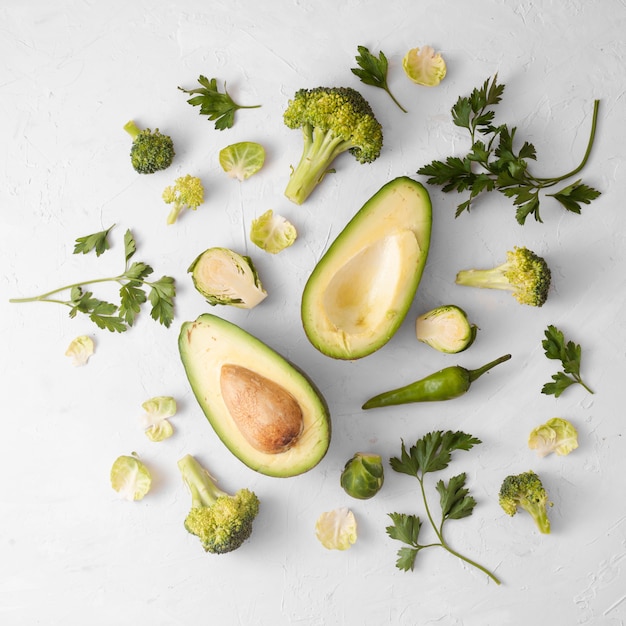
Did you participate in Veganuary this year? If you’re considering adopting a vegan lifestyle or making plant-based eating more permanent, Dr. Gemma Newman has some useful advice. With so many diets out there—low fat, high fat, low carb, high carb, vegan, paleo, keto—it’s easy to get overwhelmed. But which ones really work and which is the best?
As Veganuary gains popularity, more people are trying out a vegan diet each year. In 2018, 170,000 people signed up, a huge increase from the previous year. By last year, over 250,000 had taken the challenge, and the numbers continue to rise.
But is a vegan diet healthy? How is it different from other diets often recommended for health? There’s been a lot of confusion over nutrition, fueled by media, food companies, and even some health professionals. However, very few can argue against the benefits of eating lots of fruits and vegetables, choosing whole, unprocessed foods, and avoiding processed meats, sugary foods, and refined carbohydrates.
People often stick to “everything in moderation” when confused about healthy eating, but this isn’t always sensible. We don’t tell smokers to limit cigarettes, and it’s similar with sugary drinks and processed meats. Processed meats are classified by the World Health Organization as a class 1 carcinogen, meaning they’re known to cause cancer. Moderating isn’t suitable for such foods.
Dr. David Katz, from the American College of Lifestyle Medicine, highlights a consensus among nutrition experts: a diet rich in fruits, vegetables, beans, nuts, seeds, whole grains, and water is essential for good health. Compared to the average Western diet, both paleo and whole food plant-based diets have more in common, with an emphasis on whole foods.
Heart disease is still a leading cause of death, and the only diet shown to reverse coronary artery blockages in weeks is the whole food plant-based diet, as demonstrated in trials like the Lifestyle Heart Trial and Mount Abu Heart Trial. Until new evidence emerges, adopting this diet seems like the wisest choice for heart health.
For those accustomed to a Western diet, transitioning to a plant-based diet can seem daunting. But there are ways to ease into it. Consider starting with cookbooks like “So Vegan in 5” by Roxy Pope and Ben Pook, featuring simple recipes with five ingredients, or “BOSH!” by Henry Firth & Ian Theasby, which includes a wide range of vegan recipes.
To begin your plant-based journey, personalize it based on your current food preferences. Transform favorite meals into their plant-based counterparts, like swapping chicken curry for chickpea curry or beef Bolognese for lentil Bolognese. Start by having plant-based breakfasts a few times a week, and as you get comfortable, increase the frequency.
Transitioning to a whole food plant-based diet can lead to health benefits within weeks, though you might experience some digestive adjustments as your gut adapts. The American and British Dietetic Associations confirm that well-planned plant-based diets can be healthy for all ages and even help prevent diseases like heart disease and cancer. Plant-based diets are also linked to a reduced risk of chronic respiratory disorders, allergies, and infections, offering long-term health benefits.
Our current world suffers from nutrient depletion due to factors like mono-cropping and excessive pesticide use. A Western diet often lacks crucial nutrients like magnesium, folate, and fiber and is linked to obesity and chronic diseases. A well-planned plant-based diet, particularly the “nutritarian approach” championed by Dr. Joel Fuhrman, focuses on nutrient-dense foods, avoiding processed options.
For those on a full plant-based diet, certain supplements are important. Vitamin B12 supplementation is essential, as it’s not naturally found in plant-based foods. Adults should aim for 10mcg daily or 2000mcg weekly to ensure proper absorption and health.
Vitamin D is also crucial, especially if sunlight exposure isn’t sufficient. A daily intake of 1000iu is recommended, or 2000iu if levels are low. EPA/DHA supplements, derived from algae, provide essential omega-3 fatty acids without consuming fish.
Ground flaxseed, considered a superfood, can help support heart health and lower blood pressure. Incorporate it into meals for added nutritional benefit.
Dr. Gemma Newman, with 15 years of medical experience, emphasizes the potential for plant-based diets to support health across generations and advises considering nutrient supplements to support those adopting a vegan lifestyle.




